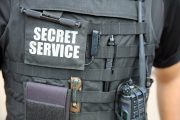
A bill presently in both a House committee and in a Senate committee in the Texas Legislature — banning abortion once a fetal heartbeat is detected — may be the vehicle that will give the Supreme Court the opportunity to reverse Roe v. Wade, Doe v. Bolton, and Planned Parenthood v. Casey, three decisions that have restrained states from passing laws outlawing abortion.
Roe v. Wade, a 7-2 ruling handed down in January 1973, held that a woman has a constitutionally protected right to an abortion, while the Planned Parenthood v. Casey decision of 1992 declared that a state could not place an undue burden on a woman seeking an abortion.
This is why pro-abortion progressives fought so intently against the elevation of Brett Kavanaugh to the Supreme Court. He replaced Anthony Kennedy, who had generally favored abortion rights.
The “heartbeat” bill is sponsored by State Representative Briscoe Cain (R-Deer Park), and is co-authored by a total of 56 members of the House. Since a heartbeat can be detected in an unborn child as early as six weeks into pregnancy, it would virtually outlaw the practice of abortion in the Lone Star State. Many women are not even aware that they are pregnant that early. Not surprisingly, the bill in Texas is opposed by the ACLU, Planned Parenthood, and NARAL Pro Choice Texas.
Currently, Texas law allows abortion up to 20 weeks, but several laws already on the books such as a mandatory ultrasound, followed by a 24-hour waiting period, have caused many women to opt against an abortion.
Cain explained why he introduced the bill. “The Texas Heartbeat Bill ensures that unborn children exhibiting a heartbeat are protected from the cruel practice of abortion. Put simply — if the heartbeat is detected, the baby is protected.” He noted that a heartbeat is a widely accepted sign of life, and that his bill, if enacted into law, would make Texas the safest place in America for unborn children.
The momentum certainly seems to be in favor of the pro-life position in Texas. In 2013, Cain’s heartbeat bill had only four authors and failed to clear committee. But Cain is optimistic that 2019 “is the year of the Heartbeat Bill. I’m humbled to see the growing wave of support this and other heartbeat bills are receiving across our state and nation.”
Mississippi’s heartbeat bill has already passed both legislative chambers and is expected to be signed into law. Several other states — including Florida, Kentucky, Maryland, Minnesota, Missouri, Ohio, South Carolina, Tennessee, and West Virginia — also have active heartbeat bills being considered, as well.
Aimee Arrambide, executive director of NARAL Pro Choice Texas, strongly opposes Cain’s legislation. “Politicians should be working to advance access to the full range of reproductive health care, including abortion care — not making it more difficult.” (It is chillingly Orwellian to describe the killing of an unborn child as “care”.)
Arrambide added, “Shame on Briscoe Cain and all anti-abortion legislators who have signed on in support of this dangerous bill, and for putting their ideological beliefs over public health.”
In the early years of the pro-life movement, in the aftermath of the infamous Roe v. Wade decision, pro-lifers pushed for a constitutional amendment to ban abortion. They soon realized that was not the best strategy. Getting two-thirds of each house of Congress and three-fourths of the state legislatures to agree to such an amendment was highly unlikely. (It also was an implicit concession that Roe was rightly decided.)
Then, the pro-life movement redirected its efforts to a two-prong approach. One was to elect presidents who would nominate pro-life judges to the Supreme Court, an effort that has proved very difficult. A second would attempt to chip away at the decision with laws doing such things as mandating parental consent and ultrasounds in the states. And no doubt these laws have saved many unborn children, and there are people alive today because of them.
It should also be noted that even if the Supreme Court were to reverse its previous decisions that have allowed abortion as a supposed constitutional right, this would not end the legal practice of abortion. It would simply return to each state the power to address abortion as it chooses — as was the case from the beginning of the republic until 1973. Unfortunately, it appears that some states would continue to allow the killing of unborn children. But several other states would either place substantial restrictions on the grisly practice, or ban it completely.
That is the option most desired by Abby Johnson, a former director of Texas Planned Parenthood, who is now pro-life. Johnson is a strong supporter of the incremental strategy, traveling to states such as Kentucky to speak in favor of a heartbeat bill there, but she would like a comprehensive ban. “Ultimately, my goal would be to ban abortion completely, but this is a good step moving the ball forward for the pro-life movement and in protecting many more babies and moms from abortion,” Johnson said in her support of the Cain bill in Texas. “I don’t think it’s ever just to intentionally take the life of an innocent human being.”
Johnson had two abortions herself before she converted to the pro-life cause. She has stated, “My two abortions are the greatest regrets of my life.”
Photo: CarlaNichiata / iStock / Getty Images Plus



